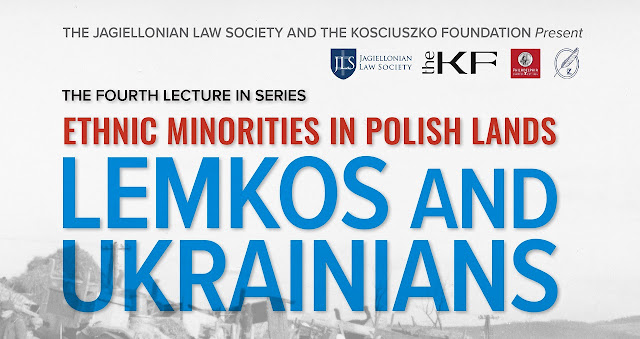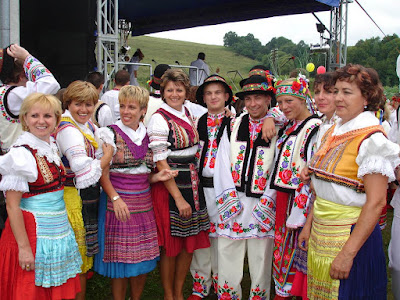 |
| National Bank of Ukraine (NBU photo CC BY-NC-ND 2.0) |
I posted earlier a link to a list published by ABC News. A friend in the D.C. area (HT @ Leah) shared the following three items, which represent the most comprehensive array of possibilities I have seen. The first two items come from a listserv of the Bethesda-Chevy Chase High School community in Maryland, near D.C.; the latter comes from an American NGO.
In addition, a family member (HT @ Jack) sent a link to the Knights of Columbus Ukraine Solidarity Fund, which promises that 100% of gifts will supply displaced people, and that the Knights will match the first half million dollars contributed.
I preface the following items by saying that none of these lists is exhaustive, and there are organizations working on the ground that also could use support, but to which it is difficult to donate because the only way to do so is a costly wire transfer. There are persons organizing group gifts to mitigate the cost of wire transfer, so such possibilities exist. But, of course, be wary of scams; choose a non-traditional giving channel only with high confidence that it's legit and ideally a personal connection to verify the legitimacy.
This first item seems to me the most direct way to give, short of an organized wire transfer. I'm leaving in the full-text links so that you can see their ".gov.ua" bona fides.
The National Bank of Ukraine has set up two accounts to which people can donate. One is to support the Armed Forces of Ukraine, one is for Humanitarian Assistance to Ukrainians affected by Russia's aggression.
Both are very simple to donate to. The links are:
[Armed Forces] https://bank.gov.ua/en/news/all/natsionalniy-bank-vidkriv-spetsrahunok-dlya-zboru-koshtiv-na-potrebi-armiyi
[Humanitarian Assistance] https://bank.gov.ua/en/news/all/natsionalniy-bank-vidkriv-rahunok-dlya-gumanitarnoyi-dopomogi-ukrayintsyam-postrajdalim-vid-rosiyskoy
Here is the second item, a list of organizations. There is a lot of overlap here with the ABC News list, which Razom topped. And the Kyiv Independent I wrote about here on Feb. 25.
- The International Medical Corps, is on the front lines helping with emergency health care services. You can donate at Ukraine | International Medical Corps.
- You can donate to the International Rescue Committee to support families affected by the Ukraine crisis.
- Chef José Andrés feeds Ukrainian refugees at the border | WTOP News. José Andrés, D.C. chef famous for feeding people in need around the world, is already in Poland with his World Central Kitchen team helping provide “thousands of meals in Poland, Romania and even inside Ukraine,” he wrote on Twitter. Anyone who wishes to donate to the efforts can go here.
- The Ukrainian Red Cross is helping with humanitarian aid, including aiding refugees and training doctors. You can donate at UKRAINE CRISIS | International Committee of the Red Cross (icrc.org).
- Journalists with the Kyiv Independent and Kyiv Post have done extraordinary work covering the war, offering the world constant updates as they fear for themselves, their families and their homes. The Independent has started a GoFundMe asking for support, and the Kyiv Post offers subscriptions for $45 a year.
- Voices of Children, a charitable foundation based in Ukraine, has been serving the psychological needs of children affected by the war in the country’s east since 2015, according to its website. The group’s psychologists specialize in art therapy and provide general psychosocial support with group classes or individual sessions. Many of its psychologists are based in the regions of Luhansk and Donetsk, areas that have long been controlled by Russian-backed separatists and that are on the front lines of the current, wider conflict. Now, Voices of Children is providing assistance to children and families all over Ukraine, even helping with evacuations. You can donate here.
- Razom for Ukraine was founded in 2014 and has since launched efforts to build a stronger democracy in the country. Now, according to its website, the nonprofit is “focused on purchasing medical supplies for critical situations like blood loss and other tactical medicine items. We have a large procurement team of volunteers that tracks down and purchases supplies and a logistics team that then gets them to Ukraine.” Razom—which means “together” in Ukrainian—posted a list of the lifesaving supplies it has already purchased and is asking for more support here.
Most large international aid organizations, including UNICEF, the UN Refugee Agency (UNHCR), the International Committee of the Red Cross, Doctors Without Borders, Save the Children and the International Rescue Committee, are currently working in Ukraine and neighboring countries, where a growing number of displaced people are fleeing.
Additional organizations helping in Ukraine and highly regarded (getting Charity Navigator’s top rating (4 stars)) are: Direct Relief, GlobalGiving, and the Center for Disaster Philanthropy.
The third item is labeled as coming from Foreign Policy for America. Again, there is overlap.
GlobalGiving Ukraine Crisis Relief Fund. Your donation to this fund will support affected communities in Ukraine, with a focus on the most vulnerable, including children, who need access to food, medical services, and psychosocial support. Donate here.
CARE Ukraine Crisis Fund. Your emergency gift supports CARE’s Ukraine Crisis Fund to reach 4 million with immediate aid and recovery, food, water, hygiene kits, psychosocial support, and cash assistance — prioritizing women and girls, families, and the elderly. Donate here.
United Help Ukraine. This US-based organization focuses on raising awareness around the ongoing conflict in Ukraine and is raising funds to provide humanitarian assistance to Ukrainians. Donate here.
Support Hospitals in Ukraine. Your donation will support Ukrainian hospitals with much needed modern medical equipment and supplies shipped from the United States. Hospitals in Ukraine are under immense strain that will likely continue for a long time regardless of when the conflict ends. Doctors have been doing a heroic job but are in dire need of more trauma-related equipment and surgical tools. Donate here.
Nova Ukraine. The Ukraine-based organization is dedicated to raising awareness about Ukraine in the US and throughout the world and providing humanitarian aid to vulnerable groups and individuals in Ukraine, ranging from medical equipment for wounded soldiers to dresses and suits for graduation days in orphanages in Ukraine. Donate here.
Ukrainian Congress Committee of America. This non-partisan US-based organization supporting the Ukrainian community is accepting donations for humanitarian aid. Their website includes additional resources for how we can support Ukrainians beyond financial assistance. Donate and learn more here.
ChildFund. ChildFund’s German sister organization, ChildFund Deutschland, has worked in Ukraine for many years and is acting quickly to provide emergency aid to kids and their families. Your support will help deliver relief and keep children safe as the crisis unfolds. Donate here.
Project HOPE. As conflict intensifies inside Ukraine, Project HOPE is on the ground responding to this crisis and is actively shipping medicines and medical supplies to assist Ukrainians. Donate here.
World Food Program USA. WFP launched an emergency operation to provide food assistance for people fleeing the conflict and is on standby to assist refugees, as requested. Their teams are also on the ground in Kyiv and in a number of the neighboring countries, leading the emergency telecommunications and logistics clusters on behalf of the United Nations. Donate here.
Support Ukrainian Journalism. Numerous Ukrainian journalists continue to provide on-the-ground reporting from Ukraine despite the risks. The Kyiv Independent can be supported here. An additional fund has been set up by a consortium of media organizations to support other Ukrainian journalists currently covering this crisis. You can support the consortium here.
I know there are several other ways to support Ukraine, but I cannot list all of them here. If you have questions about another fund or organization, please don’t hesitate to reach out to our team. For anyone who is considering volunteering in Ukraine, please consider this advice from USAID and review the resources they provide.
Prayers for Ukraine.














